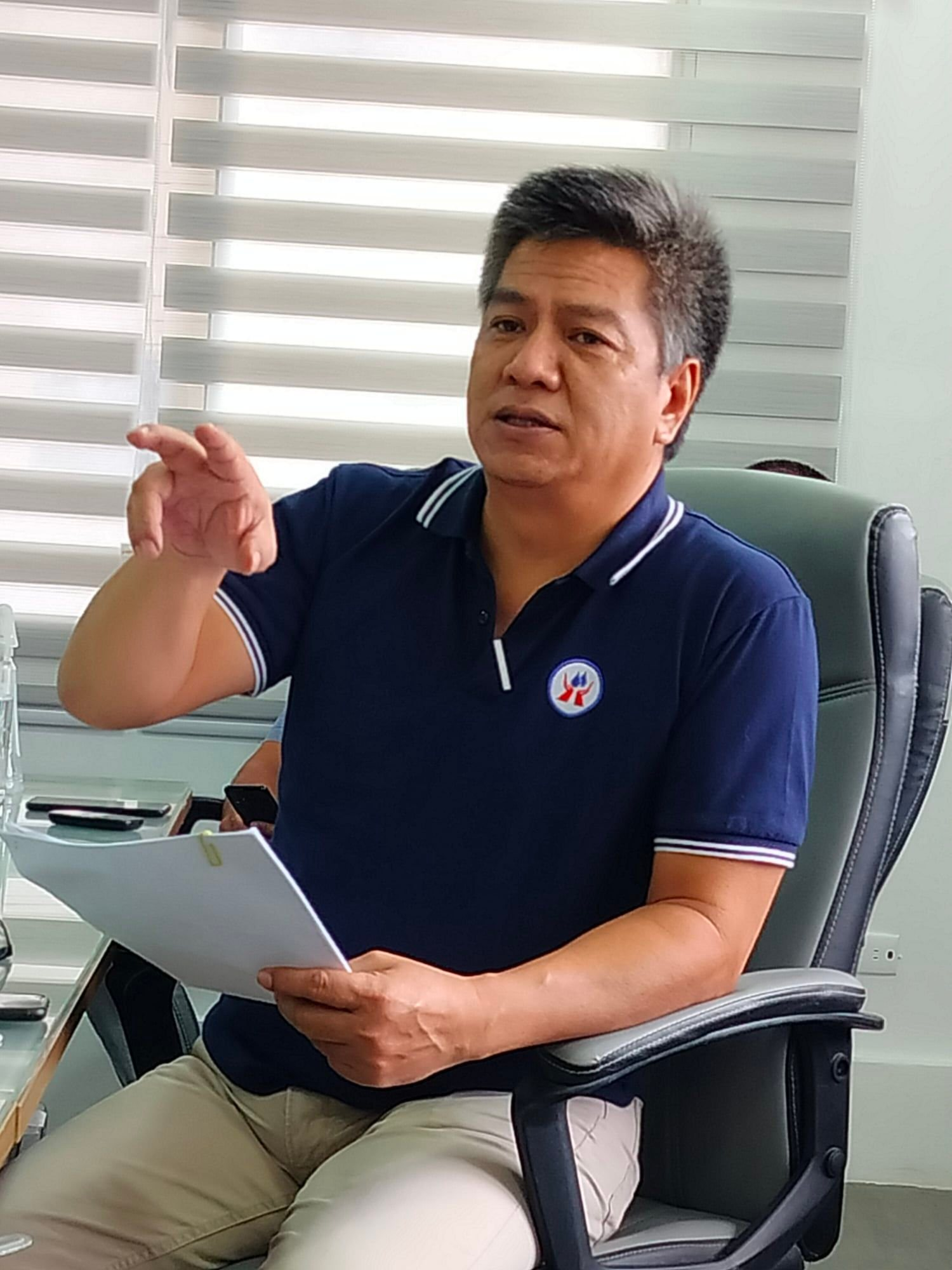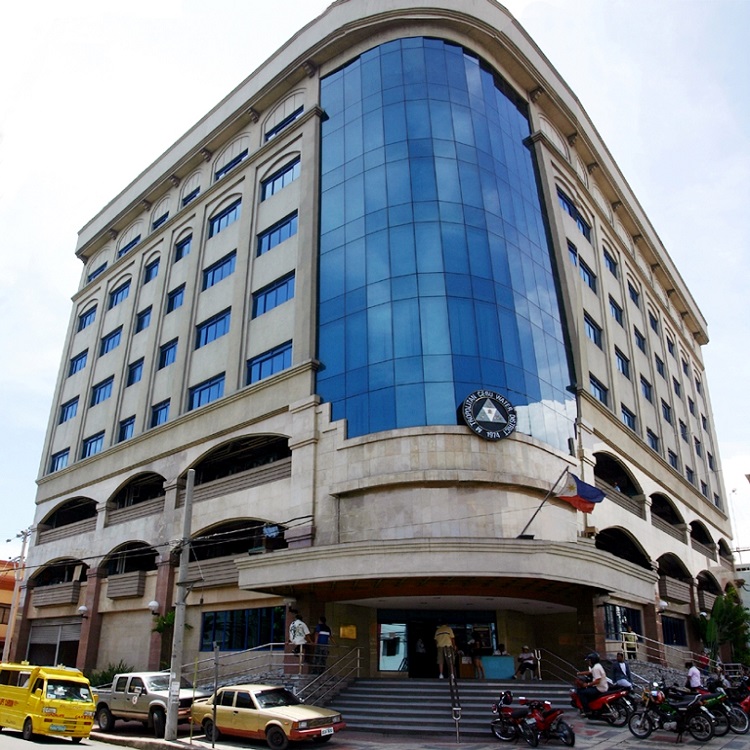The drop in commercial water sales caused by the COVID-19 pandemic and Typhoon Odette was the reason behind the decrease in the financial performance of the Metropolitan Cebu Water District (MCWD), an official explained.
Leaks and distribution of free water as part of the pandemic response and service to consumers in the aftermath of Typhoon Odette led to the increase in non-revenue water (NRW), said MCWD Finance Head Edgar Donoso.
The official issued the clarification to explain charges raised by some members of the MCWD Employees Union (MEU).

Finance Head Edgar Donoso refers to financial documents while reporting the causes behind MCWD’s revenue decrease.
Donoso said that in the first quarter of 2022 alone, revenue loss was at P60 million because they had to provide free water to barangays and the disaster response needs of the government.
“The times called for us to step up to help the community deal with the twin challenges of the pandemic and Typhoon Odette. Between profit and service, we prioritized service,” said MCWD Chairman Atty. Jose Daluz III.
Donoso said many commercial establishments closed during the pandemic and stopped sourcing water from MCWD. This resulted in a drop in “non-domestic consumption” from P952,692,777 in 2019 to P793,218,886 in 2020, a decline of P159,473,891 for this period alone.
“Despite the drop in commercial water sales, the water district actually maintained water production, but dako kaayo ta og loss in terms of our production versus atong baligya,” Donoso said. “So ang atong gipangita nga “nawagtang” nga kita sa MCWD, wala nawagtang kay wala man sa atong income in the first place, due to the refusal of our non-domestic consumers to use available water.”
Donoso noted that Cebu City has a mix of residential and non-domestic consumers compared to Mandaue City and MEPZ areas that are densely occupied by mostly industrial consumers.
He said that as a result of lockdowns and the work-from-home setup during the pandemic, overall domestic water sales increased from P800 million in 2019 to P824 million in 2020 and P888 million in 2021.
Edgar Ortega, Acting Assistant General Manager for MCWD Operations, said the decline in net income was also partly caused by the rise to 30.05 percent of water wastage or non-revenue water (NRW) in 2021. This was considerably higher than the NRW of 25 percent in 2020 and 23 percent in 2019. The average NRW for water districts is pegged at 22 to 23 percent.

Acting Assistant General Manager for Operations Edgar Ortega explains how their MCWD leak detection teams have fixed leakages amid the rise in non-revenue water (NRW).
According to him, the particularly sharp rise in supply loss or non-revenue water in 2021 accompanied the big increase in the number of leaks that year. A major cause of leaks was the simultaneous drilling by telecommunication companies in central Cebu City, which damaged 12 main transmission lines.
To address water leakages, Ortega said their three leak detection teams have worked to fix them with an average response time of 4 hours from the time they are reported to MCWD. Maintenance teams also oversee the 1,000-kilometer water transmission lines within a 6-month cycle. This is why the reported 12,048 leaks in 2021 have been reduced to 6,000 in the first half of 2022.
Ortega also said that MCWD rented 21 water trucks for three months at the height of the pandemic in 2020.
He said 652,970 cubic meters of water were distributed free of charge from December 17, 2021, up to February 1, 2022. This volume, equivalent to P20,441,963.07, was distributed to consumers through several fire hydrants and stub outs used by local government units for fire emergencies and clean and green programs.











